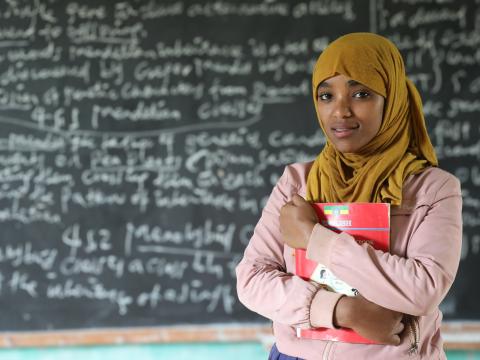A Girl’s Victorious Journey Against Menstruation Myths

Muztaz Hajibiya, an 18-year-old 11th grader, pursues her education at a public high school in Sokoru District of the Oromia Region. She dreamed of becoming a doctor, yet, engraved into her memory was a struggle she experienced and found hard to forget.
"That day is seared into my memory," Muztaz recalls, recounting her first experience with menstruation. "It was in the middle of a class, and my uniform was stained badly. It forced me to run home amidst all the stares of other kids.” She arrived home in tears.
The pain of menstruation was also real for her. Each month, she faced the frightening prospect of missing school for three days, despite her unwavering efforts to keep up with her studies. "When my teachers asked me about my absences, I found it hard to answer and just kept silent,” she says, “because I did not think they would understand.”
The lack of availability and affordability of sanitary products posed another huge challenge for Muztaz and her girl schoolmates. It hindered them from attending school regularly and put pressure on their education.
In June 2023, a beacon of hope emerged for all the girls in the school when World Vision partnered with the school to construct a Menstrual Hygiene Health (MHH) facility. This facility provided a space for girls to rest, shower, and access essential sanitary hygiene products, symbolising a new dawn of empowerment and support for the school's female students.
World Vision also assisted the creation of school WASH clubs which students now use as ideal venues to do menstrual hygiene awareness campaigns and trainings which play key roles in eliminating the long-existed myths and breaking the silence around menstruation. For Muztaz, the MHH facility symbolises resilience. "This building," she ponders, "is a physical reminder that I should not be ashamed of my period."
Muztaz’s love for education has paid off. She ranked second highest in her class last year and has become an advocate for breaking myths related to menstruation. Muztaz says eagerly, “Girls are no longer silenced by shame and stereotypes, they speak of hope and determination, in turn making a significant step towards a better future.”
By Feven Gutu, Communications Specialist (WASH), World Vision Ethiopia